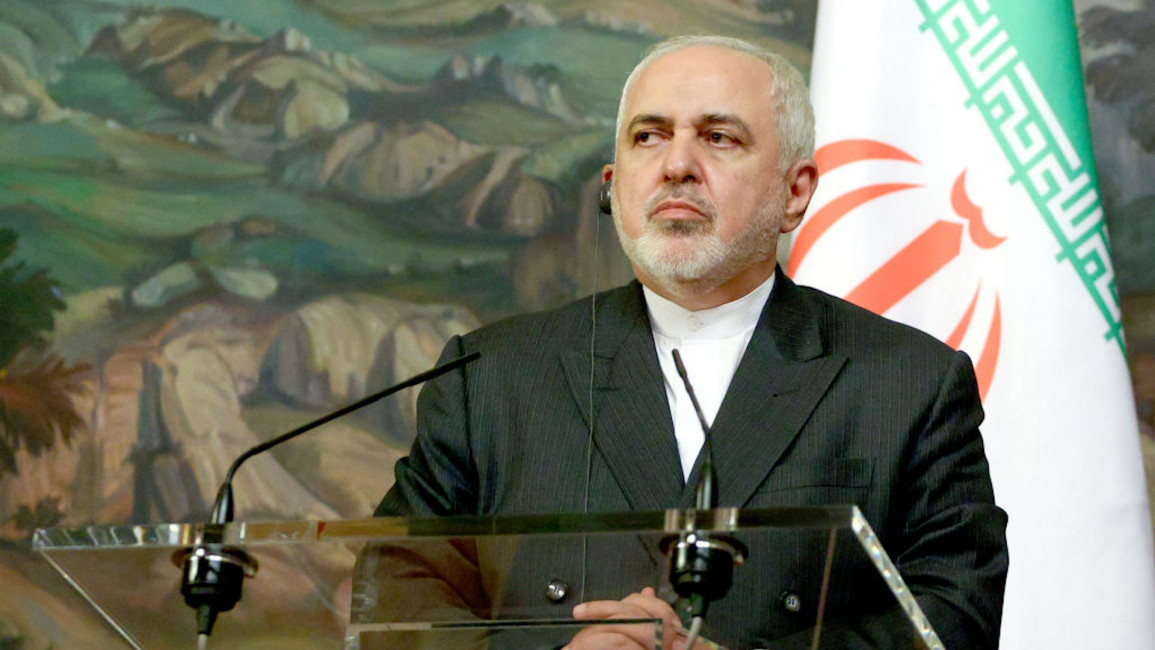Follow us on Facebook, Twitter and Instagram to stay connected
Iran dismisses Pompeo's accusations of Tehran-Al-Qaeda links as 'warmongering lies'
Iran dismisses Pompeo's accusations of Tehran-Al-Qaeda links as 'warmongering lies'
Iran has vehemently denied an accusation made by the US Secretary of State claiming that Al-Qaeda has set up a 'home base' in the country.
3 min read
Zarif has shot down US claims of terrorism [Getty]
Iran has vehemently denied claims made by the United States Secretary of State Mike Pompeo that the militant group Al-Qaeda has set up a "home base" in the county.
"[With] fictitious Iran 'declassifications' and AQ [Al Qaeda] claims, [Pompeo] is pathetically ending his disastrous career with more warmongering lies," tweeted Iranian Foreign Minister Mohammed Javad Zarif.
"No one is fooled. All 9/11 terrorists came from SecPompeo's favourite ME destinations; NONE from Iran."
In the tweet, Zarif hinted at the close relations between the US and Saudi Arabia and that of the 19 hijackers who took part in Al-Qaeda's September 11 attack, 15 were from Saudi Arabia and two from the UAE.
However, there was no clear links between the governments of these countries and the attackers.
Iranian foreign ministry spokesperson Saeed Khatibzadeh added: "Iran has been a victim of US terrorism and affiliated groups for years and has had a clear record in the fight against Al-Qaeda and Islamic State."
The denials from Iran come after US Secretary of State Mike Pompeo alleged Tuesday that arch-enemy Iran has become a new "home base" for Al-Qaeda worse than Afghanistan, an assertion questioned by experts.
|
In a speech a week before leaving office, Pompeo confirmed a The New York Times report that Al-Qaeda's second-in-command was killed last year in Tehran, although he did not say that Israel carried it out.
"Al-Qaeda has a new home base. It is the Islamic Republic of Iran," Pompeo said in a speech at the National Press Club.
"I would say Iran is indeed the new Afghanistan - as the key geographic hub for Al-Qaeda - but it's actually worse.
Unlike in Afghanistan, when Al-Qaeda was hiding in the mountains, Al-Qaeda today is operating under the hard shell of the Iranian regime's protection."
He urged more international pressure, calling the alleged alliance a "massive force for evil all over the world".
The departing US diplomat stopped short of urging military action, saying: "If we did have that option, if we chose to do that, there's a much greater risk in executing it."
He also announced sanctions on several individuals and a $7 million reward for information on a senior Al-Qaeda member who he said was believed to be in Iran and identified both as Muhammad Abbatay or Abd al-Rahman Al-Maghrebi.
Many experts believe that Tehran has allowed Al-Qaeda operatives to use its territory - comparatively safe from the US military - to provide that the extremists do not target Iran.
Iran, a Shia clerical state, is ideologically opposed both to Al-Qaeda and the Islamic State group, which are extreme Sunni movements that are predominantly Arab.
Although there have been multiple cases of collaboration between Tehran and militant Sunni groups, many analysts believe there is no firm evidence of a clear Iran-Al-Qaeda link.



